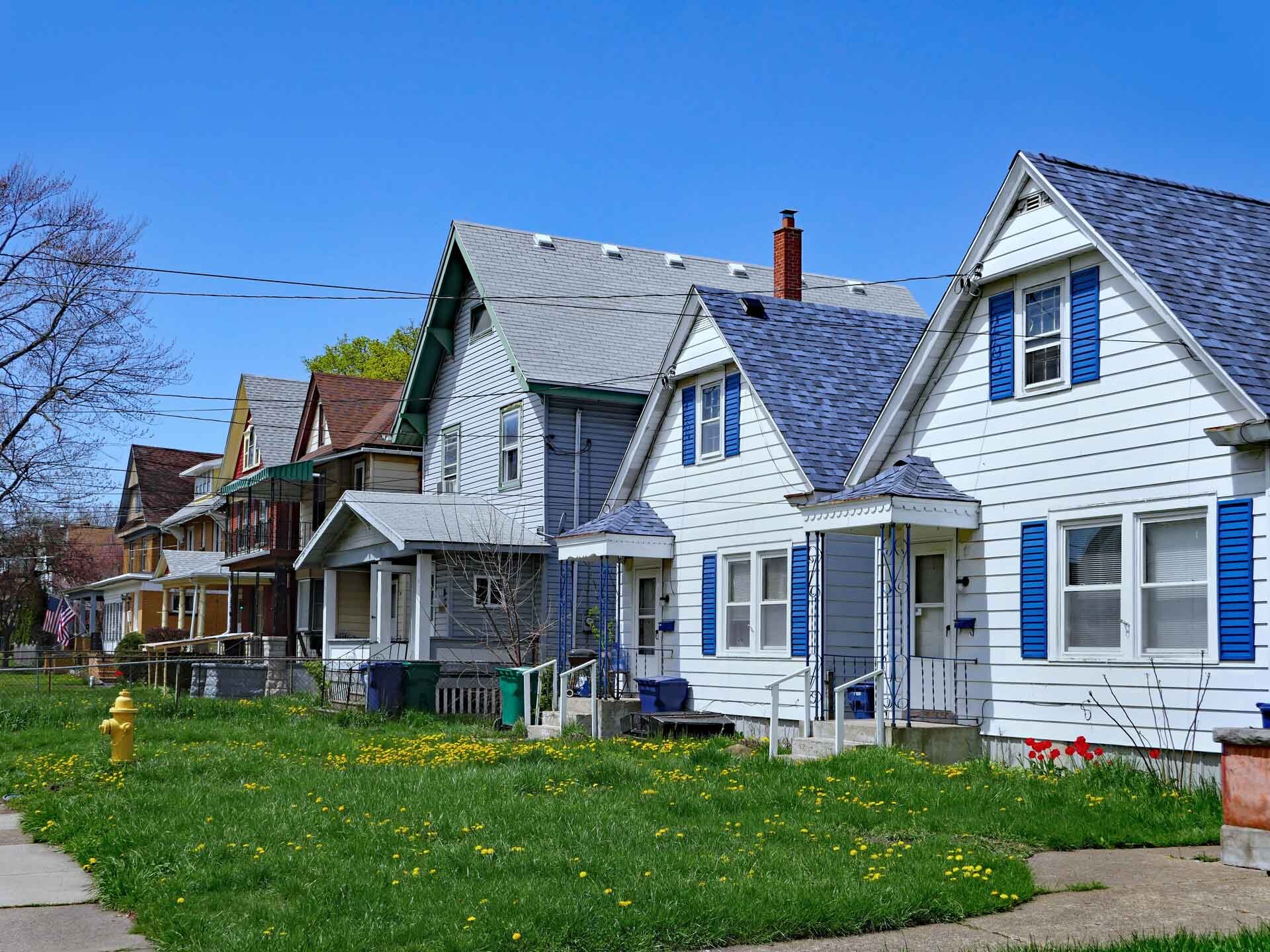Foreclosure occurs when a homeowner is unable to make their mortgage payments on time and has no way to catch up on the missed payments. Because a mortgage is a legal agreement between you and your lender, once you’ve defaulted on the loan, the lender can auction off the property to cover any outstanding debts, leaving you homeless and with terrible credit.
No one wants to receive a notice of foreclosure and yet, in a nationwide study, nearly 1 million Americans were afraid of losing their homes (U.S. Census Bureau Household Pulse Survey, fielded from July 27 to Aug. 8, 2022). Foreclosure can occur from a number of reasons, including:
- Job loss and loss of income
- Divorce or death of a spouse or partner
- Mounting debt, including medical and credit cards
- Moving without being able to sell the home
- Natural disaster
Dynamic Home Buyers is a local company operating in South Carolina that has built their business by buying distressed houses and properties in the area for cash. They promise competitive cash offers without the hassle of dealing with real estate agents, title companies, traditional bank financing, and more!
What is Foreclosure?
When you fall behind on mortgage payments due to a job loss or other financial hardship, it’s important to act quickly. The first step is to communicate with your lender. Many banks offer temporary forbearance programs or modifications that could lower your monthly payments or give you time to get back on your feet. However, if those options aren’t enough or you’re still unable to catch up on the payments, the bank will begin the foreclosure process. The bank typically starts with a “Notice of Default” after you’ve missed several payments, which is a formal declaration that they intend to take action. From there, they’ll continue the process through the legal steps of foreclosure, which could result in you losing the home.
While foreclosure can feel overwhelming, there are still options to consider before the process moves too far. A short sale may be a solution if you owe more on the house than it’s worth, allowing you to sell it for less than the mortgage balance. Alternatively, you might be able to work with a professional buyer, such as an investor who specializes in buying homes as-is, to quickly sell your home and move forward without a lengthy foreclosure. In some cases, the lender might even agree to a loan modification or restructure the terms of your mortgage to make it more manageable. The key is to stay proactive, keep communication lines open with your lender, and explore all available options to minimize the impact of foreclosure on your financial future.
How Long Do You Have To Get Out of Your House After Foreclosure?
The timeline for foreclosure can vary greatly depending on the state you’re in, but there are generally two primary types of foreclosure processes: judicial and non-judicial. In judicial foreclosures, the lender must file a lawsuit in court to get a foreclosure judgment, which can take several months or even up to a year in some states. Non-judicial foreclosures, which are more common in states with deed of trust laws, do not require court involvement and can proceed much faster, typically within a few months. Regardless of the process type, it’s important to know that the first notice you’ll receive is usually a “Notice of Default” or “Notice of Intent to Foreclose,” giving you an opportunity to resolve the issue, whether through reinstating payments, applying for a loan modification, or other options.
During this time, the lender may be more willing to work with you to avoid foreclosure. In fact, some lenders offer forbearance, payment plans, or other alternatives that can prevent foreclosure from proceeding. However, if you don’t respond or are unable to catch up on payments, the lender will move forward with the foreclosure process. As the process advances, you may receive additional notifications about the upcoming auction date, and if the home is sold at auction, you’ll be served with an eviction notice once the sale is final. It’s critical to act early if you’re facing foreclosure, as the longer you wait, the fewer options may be available to you to save your home. Engaging with the lender or seeking legal or financial advice early can often make all the difference in avoiding a negative outcome.
The Different Types of Foreclosure
There are two different types of foreclosure you may experience: nonjudicial foreclosure or judicial foreclosure.
What Is Non-Judicial Foreclosure?
A non-judicial foreclosure is the fastest and cheapest way for a lender to foreclose on your South Carolina property. It does not require taking you, the homeowner, to court and can be completed according to state statutes. In the case of non-judicial foreclosure, your lender repossesses your home to sell it and recover whatever debt is owed using what’s called a “power-of-sale” clause in the deed of trust. Not every state allows for this option but, if yours does, the lender will generally choose it to avoid any court costs.
What Is Judicial Foreclosure?
In states that require judicial foreclosure, your lender must file a lawsuit asking the court to issue an order to allow for the sale of the home. The lender must provide you with this letter. Whether you agree or not, you must respond to the letter or the lender will automatically win the case and be allowed to put your home up for a foreclosure sale. When the house is sold, you are still required to pay the difference between what you still owe on the mortgage and the amount the house sold for.
Auctions are not like regular home sales and generally the house is not sold for market value. This means that even if your house is in great shape and worth a lot more than what is left on your mortgage, you may still find yourself owing tens of thousands (if not hundreds of thousands) of dollars for a house you no longer own! This is called a deficiency judgment. It’s an expensive and long process for lenders to take to try and recoup their debt, which is why most prefer a non-judicial foreclosure.
Get an offer today, sell in a matter of days.
We buy houses in ANY CONDITION in South Carolina . There are no commissions or fees and no obligation whatsoever. Start below by giving us a bit of information about your property or call (843) 256-8393…
How to Sell Your House Before Foreclosure in South Carolina
Let’s break down a few ways you can sell your house, depending on your time frame and situation:

Hire A Real Estate Agent
While a real estate agent can certainly help you navigate the traditional home-selling process, it’s important to consider the time and uncertainty involved, especially if you’re facing foreclosure. Selling through a realtor often means dealing with contingencies, showings, and negotiations that can drag the process out. Even if you’re able to find a buyer, the typical closing period can stretch over 30 days or more. For homeowners in pre-foreclosure or facing eviction, this long waiting period can make the difference between keeping your home and losing it to the bank. The uncertainty of waiting for an offer, along with the possibility that the buyer may back out before the deal is finalized, could leave you with little control over the timing of your sale.
Another significant downside of using a realtor in situations of financial hardship is the potential for unexpected costs. Beyond the agent’s commission, which can range from 3% to 6%, there are often additional fees for repairs, staging, and open houses to make your property more marketable. In a situation where you owe more than the home is worth or are already behind on payments, these additional costs can eat into any potential profit you might have. Plus, if the house doesn’t sell quickly, you might end up needing to make mortgage payments for an extended period, adding to your financial strain. This can be especially problematic if you are already facing mounting debt or the risk of foreclosure.
An alternative option that many homeowners in difficult situations are turning to is working with a cash buyer or real estate investor. Unlike traditional real estate agents, cash buyers are ready to purchase your property as-is, without the need for repairs or showings. This can be a huge advantage for homeowners who don’t have the time, resources, or energy to fix up their home before selling. More importantly, a cash sale can close quickly—often within a matter of days—helping you avoid foreclosure and the associated damage to your credit. Plus, when selling to a cash buyer, you won’t have to pay realtor commissions or closing fees, meaning you can walk away with more of the sale price to help pay off your debts and move on to the next chapter of your life.

Short Sale
If you owe more on your house than it’s worth, the idea of a short sale can seem like a way out of a financial bind. However, it’s critical to understand that the process can be much more involved than just selling your house quickly. The first challenge you’ll face is obtaining the lender’s approval. A short sale is essentially an agreement where the lender agrees to let you sell the home for less than the mortgage balance, but the lender will need to review your financial hardship to justify this. The approval process requires you to submit a variety of financial documents, including your income statements, tax returns, and a letter explaining your hardship. The lender will want to ensure that your financial situation is unlikely to improve soon, as they want to avoid making further losses. If they approve the short sale, they’ll likely require you to demonstrate your inability to continue making payments before they will agree to proceed.
The next hurdle is finding the right professionals to guide you through the process. A skilled real estate agent who specializes in short sales is essential, as they can help market your property and negotiate with the lender. In addition to an agent, you may need to consult with an attorney who understands the legal implications of a short sale, particularly if your situation is complicated. Keep in mind that, just like a traditional sale, these professionals will charge fees for their services, which can add up. The key difference is that with a short sale, you’re selling your home for less than what you owe, which means you might not have the funds to cover these fees upfront. Some of these costs might be negotiable, but it’s essential to plan for them in advance to avoid surprises down the line.
While a short sale can help you avoid foreclosure, it’s important to understand that it still has serious consequences, particularly for your credit. The short sale will appear on your credit report and can significantly lower your credit score, although the impact may not be as severe as that of a foreclosure. However, a short sale still marks a significant negative event on your credit history and can stay on your record for up to seven years. This means you could face difficulties when trying to secure new loans, mortgages, or even car loans during that period. While you may not be liable for the full mortgage balance after the short sale, some lenders may pursue you for the remaining deficiency balance, depending on state laws and the terms of your loan agreement. This can add additional financial strain to an already difficult situation.
One of the most frustrating aspects of a short sale is the amount of time it can take to complete. The approval process can be lengthy, often taking several months, and the sale itself can drag on as you wait for an offer and approval from the lender. This uncertainty can be especially stressful if you’re already facing financial difficulties and need to sell the house quickly. Moreover, if you have a second mortgage or liens on the property, these creditors must also approve the sale, adding another layer of complexity to the process. While short sales are often seen as an alternative to foreclosure, they do not come without significant challenges. It’s crucial to weigh these challenges carefully and seek professional advice before deciding if a short sale is the right solution for your financial situation.

Sell Your House AS-IS to A Cash Buyer
If you’re under a strict time restraint to sell your house before a foreclosure progresses to auction and eviction, you do have options! You can try to sell your property with a real estate agent, work with your lender to complete a short sale, or – best of all – turn to a trusted and reliable cash investor to help you with your situation.
Some of the benefits of selling to a direct cash investor include:
- A quick and pain-free closing process.
- Avoid paying any commissions or fees.
- You won’t have to worry about marketing your house and waiting for a buyer.
- No need to clean-up or complete any repairs!
When you sell your home as-is to a direct cash buyer, you not only can avoid losing your home to an auction, but you also may be able to sell the property for enough money to get out of financial debt. Moving on with your life without the burden of a monthly mortgage payment and debt hanging over your head is one of the best gifts you can give yourself!
Can You Stop Foreclosure Once it Starts?
Pay Off Your Loan & Fees
You’ve found yourself in a difficult situation. Your debt is adding up while your finances remain the same. It’s time to get serious and look at ways to pay down your debt quickly. Do you have any items you can liquidate? Maybe you have friends or family that can gift you money or provide you with a loan until you get back on track. If you are serious about paying down your debt and stopping foreclosure, you may need a financial professional to help you restructure your budget. Use one of these solutions or combine them all to help climb that avalanche of debt and get back to living a life free of stress.
Declare Bankruptcy
As a last resort, bankruptcy may help you stop the foreclosure of your home but it comes with a high cost. The bankruptcy process is complex and will require a lawyer that specializes in bankruptcy law. If the court approves your petition, you will be entered into a government-approved credit counseling program and the bankruptcy will be reported on your credit report for 7 years. A bankruptcy affects all areas of your life, including when you try to purchase a car, apply for a credit card or bank account, and can disqualify you from future rentals.
The Homeowner Affordability and Stability Plan (HASP)
If your debt is higher than your income, you may be eligible for the Homeowner Affordability & Stability Plan (HASP). HASP is a loan modification program targeted at borrowers who are at risk of foreclosure due to insufficient income. This government program was designed to help homeowners in the United States restructure their monthly payments to fit a limited budget. Apply for the program here to see if you qualify.
Related Articles
5 Ways the Foreclosure of Your Myrtle Beach House Will Impact You in the Future
What Homeowners in Myrtle Beach Can Expect During the Foreclosure Process
The Difference Between Pre-Foreclosure and Foreclosure for Homeowners in Myrtle Beach
How to Sell Your House During Bankruptcy in Myrtle Beach
Stopping the Foreclosure Process: A Guide for Myrtle Beach Homeowners
Sell Your House Fast to a Cash Buyer
Are you ready to sell your house but don’t want to wait for the lengthy process of a traditional closing, which can stretch over 30 days or more? If you’re worried that a short sale could harm your credit, or you just want a faster way to relieve the burden of debt, working with a direct home buyer and cash investor may be the perfect solution. A trusted and reliable investor in your area can purchase your home as-is, which means you don’t have to worry about repairs, cleaning, or preparing your house for market. With cash on hand and the flexibility to close on your timeline, a direct sale offers you the opportunity to avoid the lengthy foreclosure process, skip the auction, and protect your credit in a matter of days.
While selling to a cash investor might not result in the full market value you’d receive in a traditional sale, the peace of mind and speed it offers can be a major advantage. You’ll avoid fees, commissions, and the hassle of negotiations or inspections that come with conventional home sales. Even better, because cash buyers can close quickly, you might be able to sell your home before the bank can auction it off, allowing you to sell for a price that works for you instead of accepting the much lower price often dictated by the bank. This ensures that you’re making the most out of your situation, avoiding further financial strain, and potentially saving your credit from long-term damage.
We Buy Houses in Foreclosure & Pre-foreclosure–
Get Your Offer Today!
Does the idea of finally walking away from a property without the storm cloud of foreclosure hanging over your head? Contact a real professional at Dynamic Home Buyers to find out more and get a fair cash offer for your property today.

